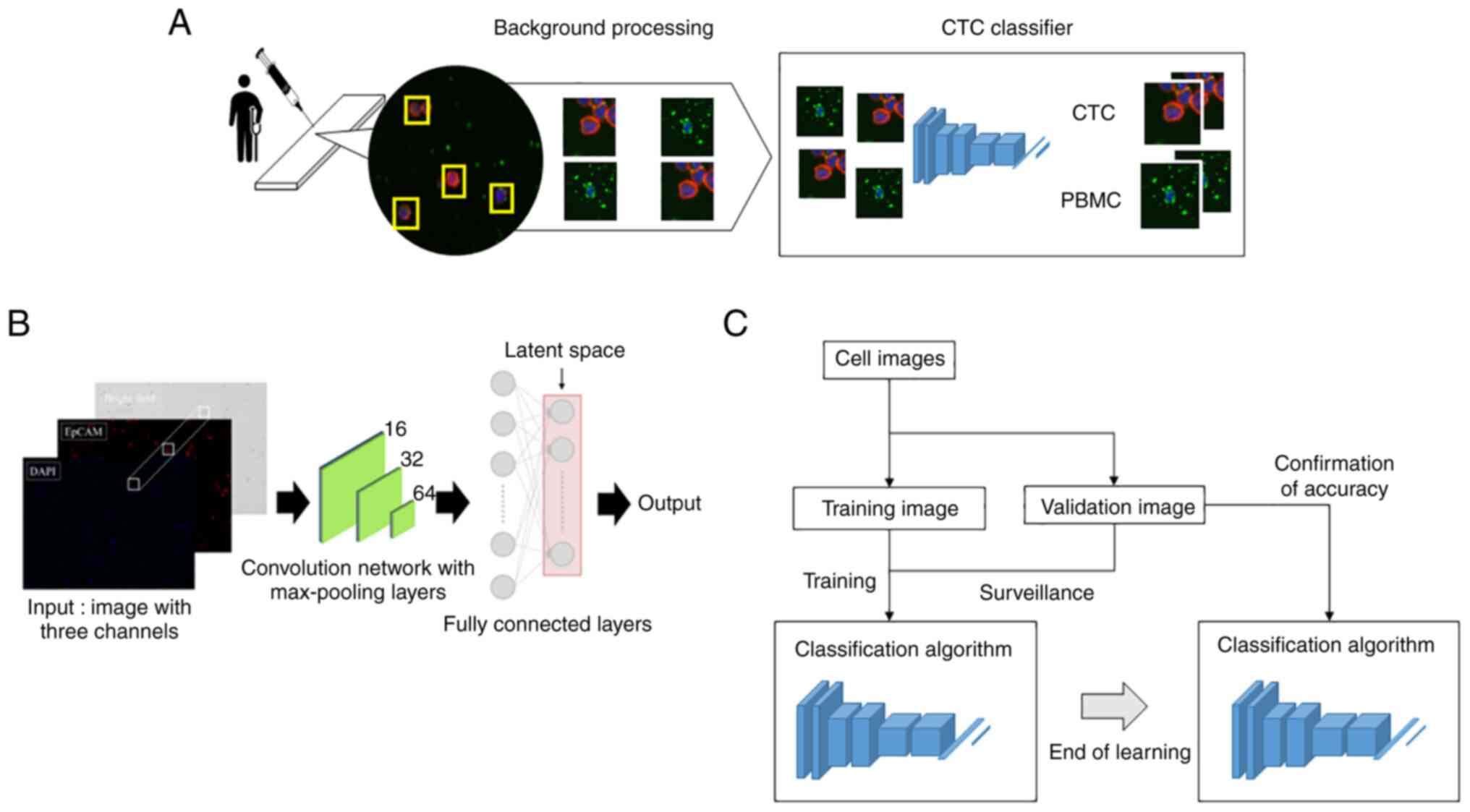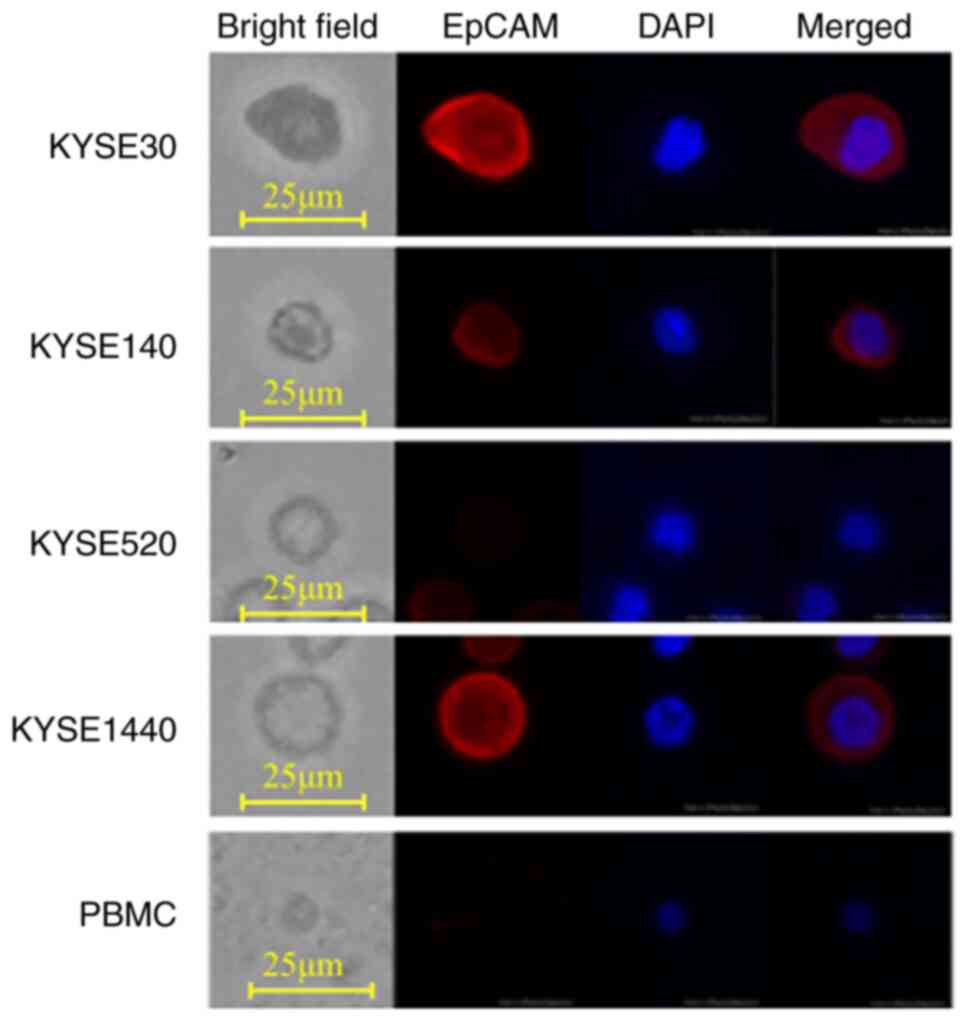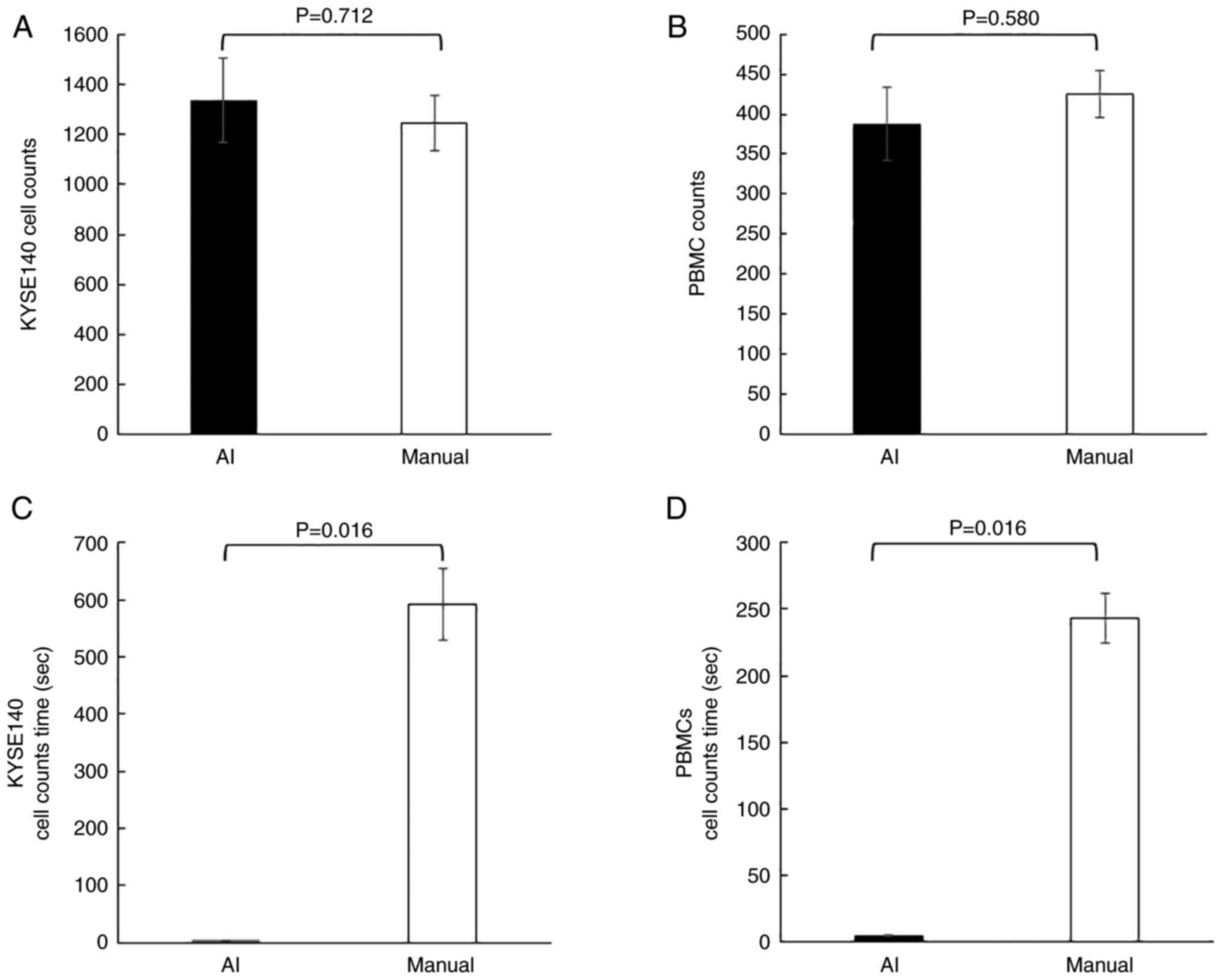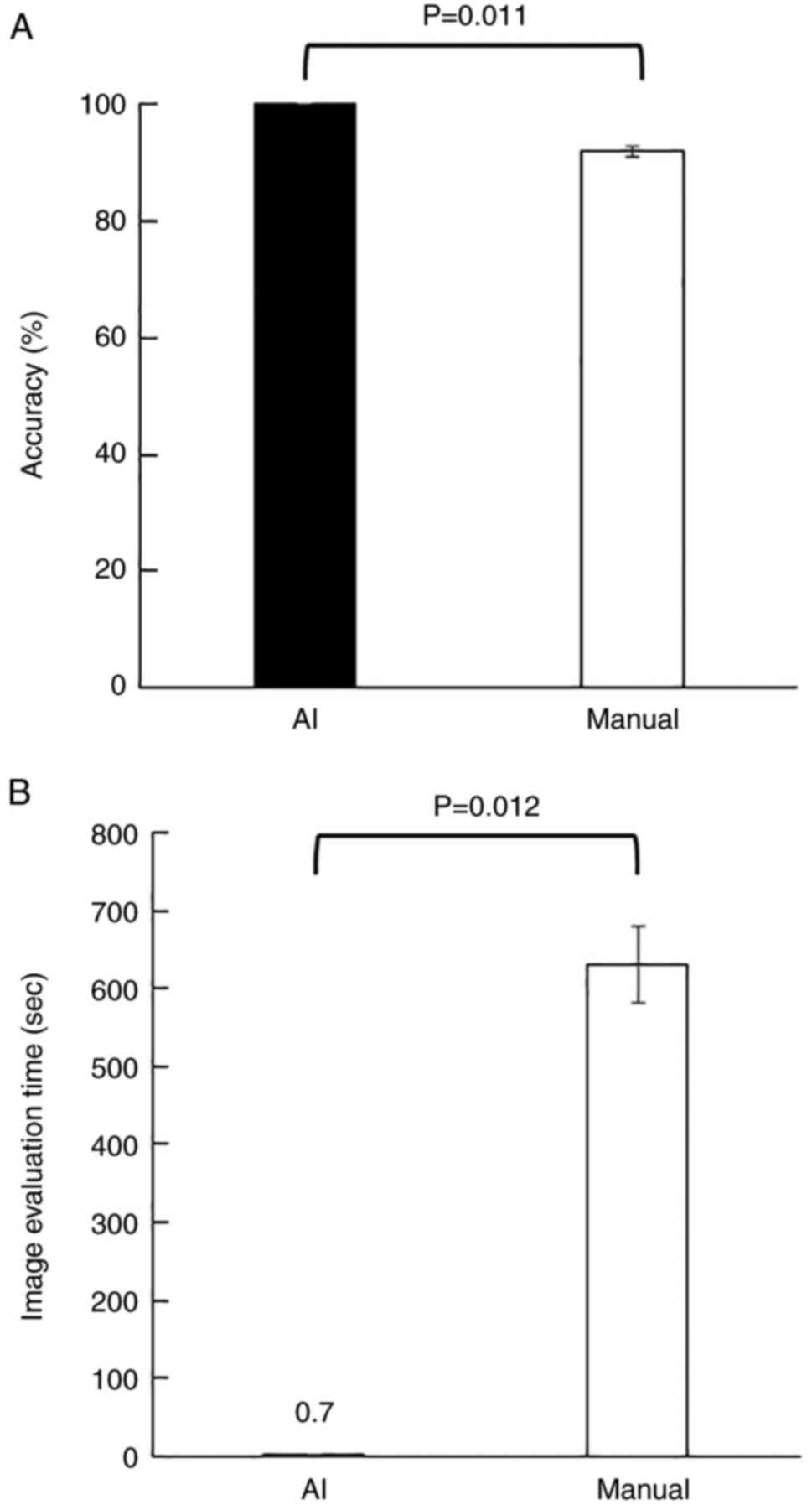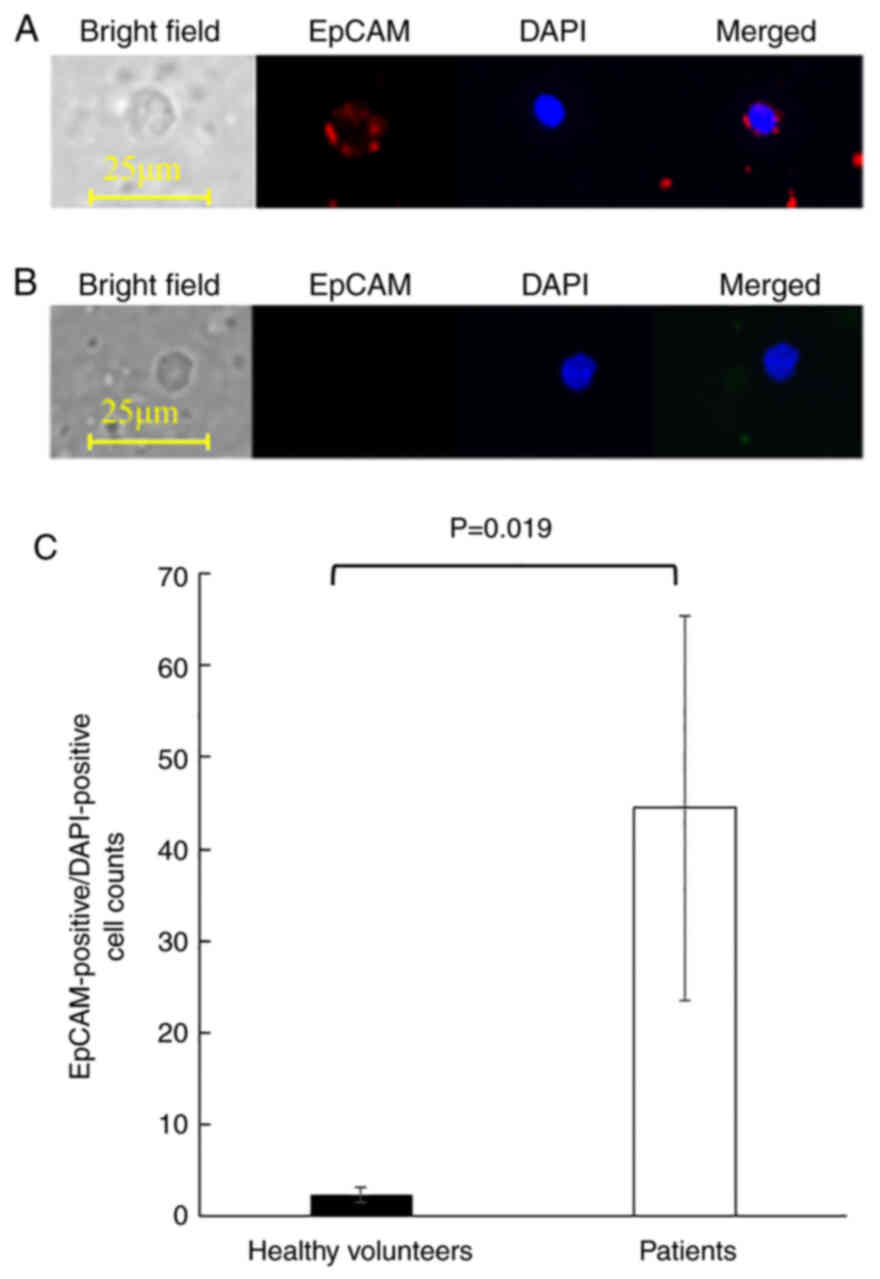|
1
|
Sung H, Ferlay J, Siegel RL, Laversanne M,
Soerjomataram I, Jemal A and Bray F: Global cancer statistics 2020:
GLOBOCAN estimates of incidence and mortality worldwide for 36
cancers in 185 countries. CA Cancer J Clin. 71:209–249. 2021.
View Article : Google Scholar : PubMed/NCBI
|
|
2
|
Watanabe M, Otake R, Kozuki R, Toihata T,
Takahashi K, Okamura A and Imamura Y: Recent progress in
multidisciplinary treatment for patients with esophageal cancer.
Surg Today. 50:12–20. 2020. View Article : Google Scholar : PubMed/NCBI
|
|
3
|
Castro-Giner F and Aceto N: Tracking
cancer progression: From circulating tumor cells to metastasis.
Genome Med. 12:312020. View Article : Google Scholar : PubMed/NCBI
|
|
4
|
Ganesh K and Massague J: Targeting
metastatic cancer. Nat Med. 27:34–44. 2021. View Article : Google Scholar : PubMed/NCBI
|
|
5
|
Rodrigues P and Vanharanta S: Circulating
tumor cells: Come together, right now, over metastasis. Cancer
Discov. 9:22–24. 2019. View Article : Google Scholar : PubMed/NCBI
|
|
6
|
Ujiie D, Matsumoto T, Endo E, Okayama H,
Fujita S, Kanke Y, Watanabe Y, Hanayama H, Hayase S, Saze Z, et al:
Circulating tumor cells after neoadjuvant chemotherapy are related
with recurrence in esophageal squamous cell carcinoma. Esophagus.
18:566–573. 2021. View Article : Google Scholar : PubMed/NCBI
|
|
7
|
Xu HT, Miao J, Liu JW, Zhang LG and Zhang
QG: Prognostic value of circulating tumor cells in esophageal
cancer. World J Gastroenterol. 23:1310–1318. 2017. View Article : Google Scholar : PubMed/NCBI
|
|
8
|
Ohnaga T, Shimada Y, Takata K, Obata T,
Okumura T, Nagata T, Kishi H, Muraguchi A and Tsukada K: Capture of
esophageal and breast cancer cells with polymeric microfluidic
devices for CTC isolation. Mol Clin Oncol. 4:599–602. 2016.
View Article : Google Scholar : PubMed/NCBI
|
|
9
|
Watanabe T, Okumura T, Hirano K, Yamaguchi
T, Sekine S, Nagata T and Tsukada K: Circulating tumor cells
expressing cancer stem cell marker CD44 as a diagnostic biomarker
in patients with gastric cancer. Oncol Lett. 13:281–288. 2017.
View Article : Google Scholar : PubMed/NCBI
|
|
10
|
Yamaguchi T, Okumura T, Hirano K, Watanabe
T, Nagata T, Shimada Y and Tsukada K: Detection of circulating
tumor cells by p75NTR expression in patients with esophageal
cancer. World J Surg Oncol. 14:402016. View Article : Google Scholar : PubMed/NCBI
|
|
11
|
Kojima H, Okumura T, Yamaguchi T, Miwa T,
Shimada Y and Nagata T: Enhanced cancer stem cell properties of a
mitotically quiescent subpopulation of p75NTR-positive cells in
esophageal squamous cell carcinoma. Int J Oncol. 51:49–62. 2017.
View Article : Google Scholar : PubMed/NCBI
|
|
12
|
Correnti M and Raggi C: Stem-like
plasticity and heterogeneity of circulating tumor cells: Current
status and prospect challenges in liver cancer. Oncotarget.
8:7094–7115. 2017. View Article : Google Scholar : PubMed/NCBI
|
|
13
|
Semaan A, Bernard V, Kim DU, Lee JJ, Huang
J, Kamyabi N, Stephens BM, Qiao W, Varadhachary GR, Katz MH, et al:
Characterisation of circulating tumour cell phenotypes identifies a
partial-EMT sub-population for clinical stratification of
pancreatic cancer. Br J Cancer. 124:1970–1977. 2021. View Article : Google Scholar : PubMed/NCBI
|
|
14
|
Shimizu H and Nakayama KI: Artificial
intelligence in oncology. Cancer Sci. 111:1452–1460. 2020.
View Article : Google Scholar : PubMed/NCBI
|
|
15
|
Elemento O, Leslie C, Lundin J and
Tourassi G: Artificial intelligence in cancer research, diagnosis
and therapy. Nat Rev Cancer. 21:747–752. 2021. View Article : Google Scholar : PubMed/NCBI
|
|
16
|
Zeune LL, Boink YE, van Dalum G, Nanou A,
de Wit S, Andree KC, Swennenhuis JF, van Gils SA, Terstappen LWMM
and Brune C: Deep learning of circulating tumour cells. Nat Machine
Intelligence. 2:124–133. 2020. View Article : Google Scholar
|
|
17
|
Russakovsky O, Deng J, Su H, Krause J,
Bernstein M, Berg A and Fei-Fei L: ImageNet large scale visual
recognition challenge. Int J Computer Vision. 115:211–252. 2015.
View Article : Google Scholar
|
|
18
|
Sobin LH, Gospodarowicz M and Wittekind C:
TNM Classification of Malignant Tumours, 7th edition, UICC
International Union Against Cancer 2010. Hoboken, NJ:
Wiley-Blackwell; 2010
|
|
19
|
Nobuyuki O: A Threshold selection method
from gray-level histograms. IEEE Transactions on Systems, Man, and
Cybernetics. 9:pp62–66. 1979. View Article : Google Scholar : PubMed/NCBI
|
|
20
|
Liu X, Faes L, Kale AU, Wagner SK, Fu DJ,
Bruynseels A, Mahendiran T, Moraes G, Shamdas M, Kern C, et al: A
comparison of deep learning performance against health-care
professionals in detecting diseases from medical imaging: A
systematic review and meta-analysis. Lancet Digit Health.
1:e271–e297. 2019. View Article : Google Scholar : PubMed/NCBI
|
|
21
|
Kamba S, Tamai N, Saitoh I, Matsui H,
Horiuchi H, Kobayashi M, Sakamoto T, Ego M, Fukuda A, Tonouchi A,
et al: Reducing adenoma miss rate of colonoscopy assisted by
artificial intelligence: A multicenter randomized controlled trial.
J Gastroenterol. 56:746–757. 2021. View Article : Google Scholar : PubMed/NCBI
|
|
22
|
Esteva A, Kuprel B, Novoa RA, Ko J,
Swetter SM, Blau HM and Thrun S: Dermatologist-level classification
of skin cancer with deep neural networks. Nature. 542:115–118.
2017. View Article : Google Scholar : PubMed/NCBI
|
|
23
|
Zhou LQ, Wang JY, Yu SY, Wu GG, Wei Q,
Deng YB, Wu XL, Cui XW and Dietrich CF: Artificial intelligence in
medical imaging of the liver. World J Gastroenterol. 25:672–682.
2019. View Article : Google Scholar : PubMed/NCBI
|
|
24
|
Zheng S, Lin HK, Lu B, Williams A, Datar
R, Cote RJ and Tai YC: 3D microfilter device for viable circulating
tumor cell (CTC) enrichment from blood. Biomed Microdevices.
13:203–213. 2011. View Article : Google Scholar : PubMed/NCBI
|
|
25
|
Moore MJ, Sebastian JA and Kolios MC:
Determination of cell nucleus-to-cytoplasmic ratio using imaging
flow cytometry and a combined ultrasound and photoacoustic
technique: A comparison study. J Biomed Opt. 24:1–10. 2019.
View Article : Google Scholar : PubMed/NCBI
|
|
26
|
Guo Z, Lin X, Hui Y, Wang J, Zhang Q and
Kong F: Circulating tumor cell identification based on deep
learning. Front Oncol. 12:8438792022. View Article : Google Scholar : PubMed/NCBI
|
|
27
|
Habli Z, AlChamaa W, Saab R, Kadara H and
Khraiche ML: Circulating tumor cell detection technologies and
clinical utility: Challenges and opportunities. Cancers (Basel).
12:19302020. View Article : Google Scholar : PubMed/NCBI
|
|
28
|
Miki Y, Yashiro M, Kuroda K, Okuno T,
Togano S, Masuda G, Kasashima H and Ohira M: Circulating
CEA-positive and EpCAM-negative tumor cells might be a predictive
biomarker for recurrence in patients with gastric cancer. Cancer
Med. 10:521–528. 2021. View Article : Google Scholar : PubMed/NCBI
|
|
29
|
Han D, Chen K, Che J, Hang J and Li H:
Detection of epithelial-mesenchymal transition status of
circulating tumor cells in patients with esophageal squamous
carcinoma. Biomed Res Int. 2018:76101542018. View Article : Google Scholar : PubMed/NCBI
|
|
30
|
Gao Y, Fan WH, Song Z, Lou H and Kang X:
Comparison of circulating tumor cell (CTC) detection rates with
epithelial cell adhesion molecule (EpCAM) and cell surface vimentin
(CSV) antibodies in different solid tumors: A retrospective study.
PeerJ. 9:e107772021. View Article : Google Scholar : PubMed/NCBI
|
|
31
|
Chaw SY, Abdul Majeed A, Dalley AJ, Chan
A, Stein S and Farah CS: Epithelial to mesenchymal transition (EMT)
biomarkers-E-cadherin, beta-catenin, APC and Vimentin-in oral
squamous cell carcinogenesis and transformation. Oral Oncol.
48:997–1006. 2012. View Article : Google Scholar : PubMed/NCBI
|
|
32
|
Shi Y, Ge X, Ju M, Zhang Y, Di X and Liang
L: Circulating tumor cells in esophageal squamous cell
carcinoma-Mini review. Cancer Manag Res. 13:8355–8365. 2021.
View Article : Google Scholar : PubMed/NCBI
|
|
33
|
Fischer KR, Durrans A, Lee S, Sheng J, Li
F, Wong ST, Choi H, El Rayes T, Ryu S, Troeger J, et al:
Epithelial-to-mesenchymal transition is not required for lung
metastasis but contributes to chemoresistance. Nature. 527:472–476.
2015. View Article : Google Scholar : PubMed/NCBI
|
|
34
|
Mani SA, Guo W, Liao MJ, Eaton EN, Ayyanan
A, Zhou AY, Brooks M, Reinhard F, Zhang CC, Shipitsin M, et al: The
epithelial-mesenchymal transition generates cells with properties
of stem cells. Cell. 133:704–715. 2008. View Article : Google Scholar : PubMed/NCBI
|
|
35
|
Deng Z, Wu S, Wang Y and Shi D:
Circulating tumor cell isolation for cancer diagnosis and
prognosis. EBioMedicine. 83:1042372022. View Article : Google Scholar : PubMed/NCBI
|
|
36
|
Gkountela S, Castro-Giner F, Szczerba BM,
Vetter M, Landin J, Scherrer R, Krol I, Scheidmann MC, Beisel C,
Stirnimann CU, et al: Circulating tumor cell clustering shapes DNA
methylation to enable metastasis seeding. Cell. 176:98–112. 2019.
View Article : Google Scholar : PubMed/NCBI
|
|
37
|
Allard WJ, Matera J, Miller MC, Repollet
M, Connelly MC, Rao C, Tibbe AG, Uhr JW and Terstappen LW: Tumor
cells circulate in the peripheral blood of all major carcinomas but
not in healthy subjects or patients with nonmalignant diseases.
Clin Cancer Res. 10:6897–6904. 2004. View Article : Google Scholar : PubMed/NCBI
|















